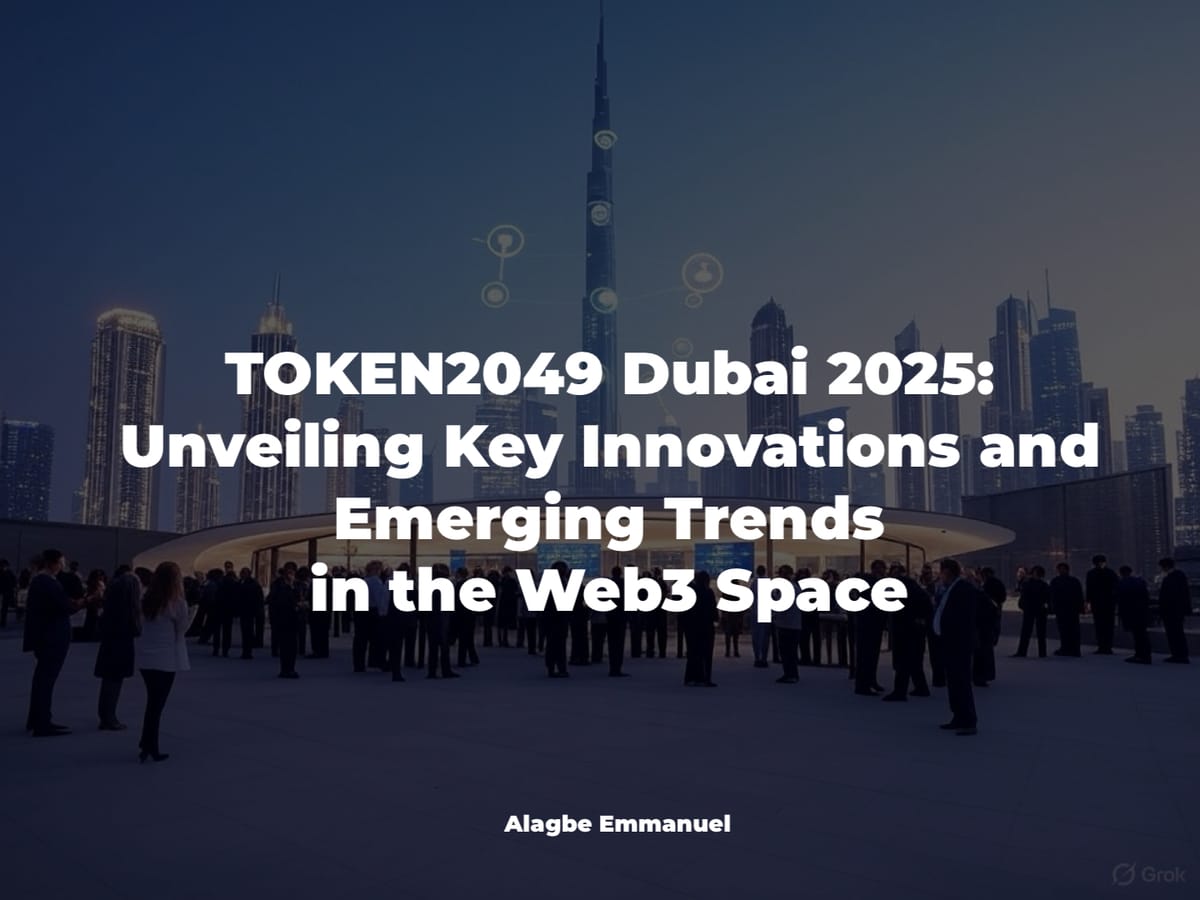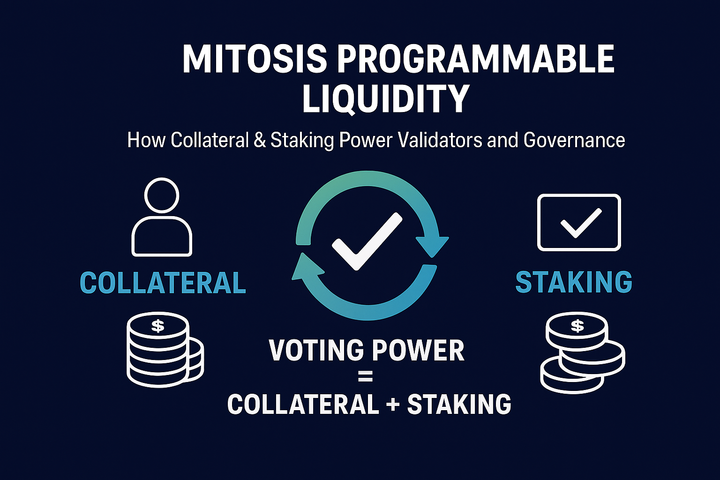TOKEN2049 Dubai 2025: Unveiling Key Innovations and Emerging Trends in the Web3 Space

Dubai, a city synonymous with innovation and ambition, once again solidified its position as a global hub for blockchain and Web3 advancements during TOKEN2049 Dubai 2025. Held from April 30 to May 1 at the luxurious Madinat Jumeirah, this premier Web3 conference attracted over 15,000 attendees from more than 4,000 companies across 160 countries. With over 200 industry-leading speakers, including C-suite executives, policymakers, and technology pioneers, the event served as a dynamic platform for showcasing groundbreaking innovations, fostering high-level networking, and shaping the future of the decentralized ecosystem. Below, we explore the key innovations and emerging trends that defined TOKEN2049 Dubai 2025.
A Global Stage for Web3 Innovation
TOKEN2049 has evolved into the world’s leading Web3 conference, with its dual-hub model in Dubai and Singapore cementing its status as a must-attend event for industry leaders. The 2025 Dubai edition, set against the city’s futuristic skyline, transformed the Madinat Jumeirah into a pulsating hub of blockchain innovation. The conference’s sold-out status underscored the global appetite for Web3 advancements, with attendees ranging from entrepreneurs and developers to investors and regulators. The event’s 500+ side events during TOKEN2049 Week (April 28–May 4) further amplified its impact, offering hackathons, workshops, and exclusive networking opportunities that sparked collaboration and deal-making.
Key Innovations Showcased
TOKEN2049 Dubai 2025 was a launchpad for transformative Web3 products and initiatives, with several standout innovations capturing the industry’s attention:
- Fastex’s Web3 Ecosystem Expansion
Fastex, a Dubai-based Web3 ecosystem, unveiled a real-world asset marketplace and a digital health app powered by its Bahamut blockchain, which utilizes a proof-of-stake-and-activity (PoSA) consensus mechanism. The ftNFT platform, a series of “phygital” NFT experience centers in Dubai, Venice, and Yerevan, merged physical and digital realms, allowing visitors to create metaverse avatars using in-store 3D scanners. Fastex’s Cerebrum Virtual City initiative also made waves, aiming to build virtual replicas of cities like Dubai within the metaverse, complete with AI-driven customer support via Hoory AI. These developments highlighted Dubai’s role as a testing ground for innovative Web3 applications. - Meta Earth’s Modular Blockchain Revolution
Meta Earth emerged as a standout participant, launching ME Network v2.0, a modular blockchain infrastructure designed for scalability and performance. As the only modular blockchain project among the conference’s title and platinum sponsors, Meta Earth introduced ME ID, a KYC-based decentralized identity system offering users daily rewards, staking income, and referral incentives. The project’s Official Launch Event, accompanied by over $1 million in prizes, positioned Meta Earth as a pioneer in compliant, user-centric Web3 innovation. - Stablecoin and Institutional Integration
World Liberty Financial announced plans to integrate its WLF stablecoin, USD1, on the TRON network, with ambitions to mint hundreds of millions in USD1 and achieve billions in market capitalization. A landmark moment came with the closing of a $2 billion investment in Binance using USD1, marking the first institutional investment executed entirely through a stablecoin. This underscored the growing role of stablecoins in bridging traditional finance and decentralized ecosystems. - NOWNodes’ Infrastructure Upgrades
NOWNodes, a leading Infrastructure-as-a-Service provider, showcased upgrades to its suite, supporting over 100 blockchain networks. By simplifying node operations and offering scale-ready APIs, NOWNodes enables developers to focus on building DeFi apps, wallets, and decentralized exchanges without infrastructure burdens. Their presence at TOKEN2049 highlighted the critical role of robust backend solutions in scaling Web3 projects.
Emerging Trends in the Web3 Space
TOKEN2049 Dubai 2025 illuminated several trends poised to shape the future of Web3, reflecting the industry’s maturation and integration with broader technological and economic systems:
- Convergence of AI and Blockchain
The synergy between artificial intelligence (AI) and blockchain took center stage, with panels exploring how AI can enhance decentralized applications (dApps) and smart contracts. Industry leaders like Changpeng Zhao, founder of Binance, emphasized the role of practical AI agents in managing dApps, improving user experiences, and driving crypto adoption. AI-related cryptocurrencies, such as Bittensor and Fetch.ai, saw increased interest, reflecting market optimism about this convergence. - Real-World Asset (RWA) Tokenization
Tokenization of real-world assets emerged as a key focus, with discussions on fractional ownership, programmable collectibles, and yield opportunities on centralized exchanges. Events like the RWA Gulf Summit 2025, hosted during TOKEN2049 Week, highlighted how tokenized assets are redefining ownership in industries like real estate and finance. Eric Trump’s announcement that buyers of a Trump-branded luxury tower in Dubai could pay using Bitcoin further signaled the merging of traditional and digital markets. - Decentralized Physical Infrastructure Networks (DePIN)
DePINs, distributed networks leveraging IoT, energy-sharing grids, and on-chain asset representation, gained traction as a transformative Web3 model. Projects like peaq showcased DePIN applications in decentralized AI, energy, and agriculture, underscoring their potential to disrupt traditional infrastructure models. - Regulatory Clarity and Compliance
Dubai’s progressive regulatory environment, supported by the Dubai Virtual Assets Regulatory Authority (VARA), was a recurring theme. Panels and roundtables, such as the DMCC x VARA policy discussion, explored balancing innovation with compliance. The UAE’s crypto-friendly policies have attracted major firms like Binance and CoinW, with Abu Dhabi-backed MGX’s $2 billion investment in Binance highlighting strong institutional confidence. - Maturation of DeFi and DAOs
Decentralized finance (DeFi) and decentralized autonomous organizations (DAOs) were central to discussions, with innovations in liquidity protocols, automated market makers (AMMs), and governance models taking the spotlight. The DeFAI & Restaking Day side event, featuring speakers from Ethereum, Solana, and Bitcoin ecosystems, explored cross-chain dialogue and restaking mechanisms, reflecting DeFi’s evolution into a more sophisticated and interconnected space.
Dubai’s Role as a Web3 Powerhouse
TOKEN2049 Dubai 2025 reinforced the United Arab Emirates’ emergence as a global blockchain hub. The UAE’s forward-thinking regulations, robust infrastructure, and strategic location have attracted talent, investment, and innovation. Companies like CoinW, which announced Dubai as its global headquarters, and Bybit, a Gold Sponsor showcasing crypto utility, leveraged the conference to strengthen their regional presence. The event’s scale and diversity—70% of attendees held C-suite roles—underscored Dubai’s ability to convene decision-makers and drive meaningful partnerships.
Looking Ahead
TOKEN2049 Dubai 2025 was more than a conference; it was a barometer for the Web3 industry’s trajectory. The innovations unveiled, from modular blockchains to AI-driven dApps, and the trends highlighted, RWA tokenization, DePINs, and regulatory alignment, signal a maturing ecosystem poised for broader adoption. As Dubai continues to lead the charge, events like TOKEN2049 serve as catalysts for collaboration, innovation, and progress in the decentralized future.
Disclaimer: The information in this article is for informational purposes only and does not constitute financial or investment advice. Cryptocurrency investments carry risks, and readers should conduct their own research before making decisions.



Comments ()